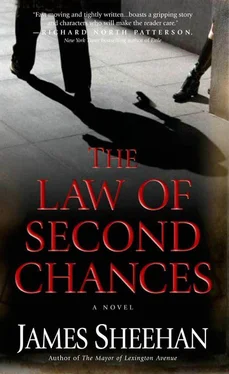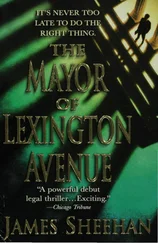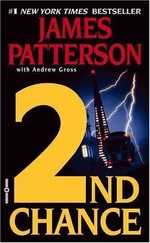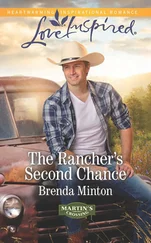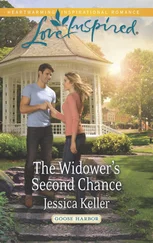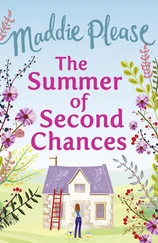James Sheehan - The Law of Second Chances
Здесь есть возможность читать онлайн «James Sheehan - The Law of Second Chances» весь текст электронной книги совершенно бесплатно (целиком полную версию без сокращений). В некоторых случаях можно слушать аудио, скачать через торрент в формате fb2 и присутствует краткое содержание. Год выпуска: 2013, ISBN: 2013, Издательство: James Sheehan, Жанр: Триллер, на английском языке. Описание произведения, (предисловие) а так же отзывы посетителей доступны на портале библиотеки ЛибКат.
- Название:The Law of Second Chances
- Автор:
- Издательство:James Sheehan
- Жанр:
- Год:2013
- ISBN:9781630011659
- Рейтинг книги:3 / 5. Голосов: 1
-
Избранное:Добавить в избранное
- Отзывы:
-
Ваша оценка:
- 60
- 1
- 2
- 3
- 4
- 5
The Law of Second Chances: краткое содержание, описание и аннотация
Предлагаем к чтению аннотацию, описание, краткое содержание или предисловие (зависит от того, что написал сам автор книги «The Law of Second Chances»). Если вы не нашли необходимую информацию о книге — напишите в комментариях, мы постараемся отыскать её.
The Law of Second Chances — читать онлайн бесплатно полную книгу (весь текст) целиком
Ниже представлен текст книги, разбитый по страницам. Система сохранения места последней прочитанной страницы, позволяет с удобством читать онлайн бесплатно книгу «The Law of Second Chances», без необходимости каждый раз заново искать на чём Вы остановились. Поставьте закладку, и сможете в любой момент перейти на страницу, на которой закончили чтение.
Интервал:
Закладка:
Jack watched the jurors, especially the women, fall for Spencer and his schmaltz.
When Spencer finally got to Benny’s case, he began by describing the victim, Carl Robertson, and his stellar and lucrative career in the oil business. Then almost reluctantly he told them about Carl’s “imperfections,” that he’d had a mistress whose name was Angie and that he’d brought her money every month and paid for her apartment.
He briefly described what Angie’s testimony would be and told them he would also be calling two eyewitnesses, Paul Frazier and David Cook, who lived in Angie’s building. They had heard the shot and immediately gone to the window and seen a man leaning over the body of Carl Robertson. They’d later identified that man as Benny Avrile, the defendant.
It was a simple story of motive and opportunity: Benny was there, the motive was robbery, and he’d shot Carl Robertson in cold blood.
“The only question you have to answer, ladies and gentlemen, is this: Does the evidence prove beyond a reasonable doubt that the accused, Benny Avrile, killed Carl Robertson in cold blood? The answer is a resounding yes.”
Spencer was driving an express train. His opening had taken only twenty minutes. He hadn’t talked about any of the forensic evidence. He didn’t need to. It would come up during the testimony itself, clearly supporting the simple, straightforward story he had told the jury.
It was now Jack’s turn. Jack had considered waiving his opening and giving it at the start of his defense. But this was a fight, like a boxing match or a gladiator’s duel. The jury had seen and heard from Spencer; now they wanted to hear from him. He had a problem, though, and it was a big problem. He still didn’t know what his defense was. All he could do was give them what he had at the moment.
In his preparations, two major issues had concerned Jack, the first obviously being the charge of first-degree murder. The second problem was almost of equal importance: the felony murder count. The felony murder rule basically provided that if someone was killed during the commission of a felony, everyone involved in the felony was guilty of murder. Thus, if Benny was attempting to rob Carl Robertson, that was enough for a conviction under the felony murder rule. Felony murder was second-degree murder and not punishable by death.
The governor wanted death. Spencer Taylor wanted death so badly Jack was sure that the man could taste it; anything less than a first-degree murder conviction would be considered a blot on his resume. Jack hoped to take advantage of that relentless focus to at least dispose of the felony murder count. Then the jury would only have one issue to decide.
He had a plan, but like everything else at this point, it was pretty much a crapshoot.
He stood up and walked to the podium. Jack was wearing an olive green suit, a blue shirt, and a maroon tie. At six two, he was taller than Spencer and appeared stronger and fitter than the younger man. His hair was short and gray and sparse in places, and his face was weathered by age and experience-a good-looking man, but even on his best day nobody would ever have described Jack Tobin as beautiful.
“Good morning, ladies and gentlemen,” he began. His tone was pleasant but businesslike enough to let them know he wasn’t going to ingratiate himself to them. That wasn’t his style.
“You know what I’m going to say to you first off because we discussed it during jury selection. The state has the burden of proof: it has to prove its case beyond a reasonable doubt. That is our system of justice. You all assured me that you would hold the state to its burden. The defendant has a constitutional right not to testify, and he will not in this case. You all assured me that you would honor that right. The defense does not have an obligation to put on any witnesses. You all assured me that you understood that concept. I’m going to hold you to those promises.”
Jack paused and looked each juror in the eye.
“Now, what have you heard from the state this morning? I know it’s not evidence, but let’s assume for the moment that Mr. Taylor is accurately stating his case. A man is shot on a city street at ten o’clock at night and two people look out their window sometime soon after the event and see another man kneeling over the victim and they later identify the accused as that man. Is he just a person who happened to be on that street at that precise moment responding to an emergency situation without thinking, or is he the perpetrator? That is the ultimate question you have to answer. In order to do that, you must ask the following questions: Did anyone see this man stealing money? Did they see him with a gun?
If the answer to those two questions is no and there is no evidence of any other connection between the defendant and the deceased, then the state has simply not met its burden and you must find the defendant not guilty.”
That was it. Jack’s opening was only a few minutes long-much shorter and simpler than Spencer Taylor’s. Both men knew the trial was going to be a lot more complicated.
59
Henry had another name for Micanopy-two names, actually. He wanted to call it Oakville or, even better, Eerieville. Micanopy was a small little inland town, a slice of Old Florida-an old Florida that Henry didn’t think he would have liked too much. Somewhere in the recesses of his brain he recalled that a whole community of black folks had been massacred somewhere around here at a place called Rosewood.
The main street was lined with giant oak trees that formed a canopy over the road. Spanish moss hung from the branches like rotted tinsel. “Eerieville” was just right-and he hadn’t even seen the place at night yet.
It was about ten o’clock in the morning. He had flown into Tampa late Tuesday night and stayed at a hotel near the airport. He’d rented a car first thing in the morning and headed north on Interstate 75.
Micanopy was nothing more than two or three blocks of antiques stores, a town hall, and a library. It had that slow feel of the Old South. Henry had no idea where 26 Robin Lane was, so he pulled up next to the only person on the street, an old man who was shuffling along, and asked him for directions.
The old man rubbed his chin and looked to the sky for guidance. Henry was sure he didn’t have a clue. After a minute or so the man finally spoke, in a slow Southern drawl that only added to the feel of the whole place.
“Well, you go down this street here a ways,” the old man said, pointing back in the direction Henry had come from, “and you go maybe half a mile or so until you see a turnoff on the right. That’s Robin Lane. Now 26, I believe, is the third place on the left. That’s about a mile down the road.” He took another look at Henry and added, “I’d be mighty careful if I were you,” and then he turned and shuffled off. Old South indeed , Henry thought as he pulled away, shaking his head.
Surprisingly, the old man’s directions were very good. Henry found Robin Lane right where it was supposed to be. It was a narrow dirt road not wide enough for two cars, and he took it slowly. After about a mile and a half he’d counted only two places on the left so he decided to backtrack, realizing he’d probably missed the third left. Then he spotted it-a driveway so overgrown with old orange trees and bushes and mangroves that there was barely room for a car to fit. He turned in and kept going for what seemed like forever, the overgrowth scratching the finish of the rental car, until he came to a clearing. Beyond was a two-story wooden house with a wide front porch and a tin roof. A dog was lying on the porch; it didn’t move as the car approached. Henry noticed fields behind the house, a barn, and some cattle and horses. He turned to the left and pulled the car up a good distance from the house, mindful both of the dog and of the old man’s words. He got out and started walking slowly and cautiously toward the house. He was just about to shout and ask if anyone was home when a single shot rang out. Henry hit the ground.
Читать дальшеИнтервал:
Закладка:
Похожие книги на «The Law of Second Chances»
Представляем Вашему вниманию похожие книги на «The Law of Second Chances» списком для выбора. Мы отобрали схожую по названию и смыслу литературу в надежде предоставить читателям больше вариантов отыскать новые, интересные, ещё непрочитанные произведения.
Обсуждение, отзывы о книге «The Law of Second Chances» и просто собственные мнения читателей. Оставьте ваши комментарии, напишите, что Вы думаете о произведении, его смысле или главных героях. Укажите что конкретно понравилось, а что нет, и почему Вы так считаете.
